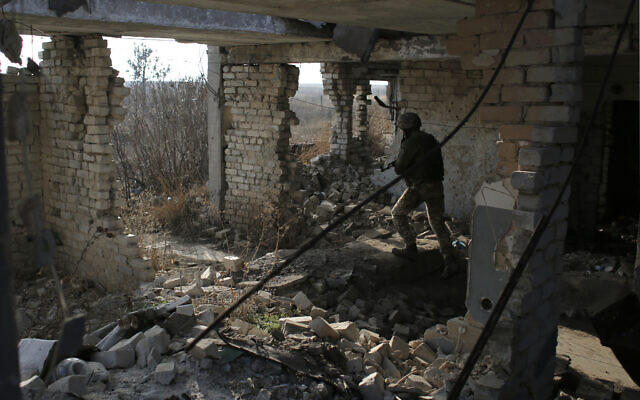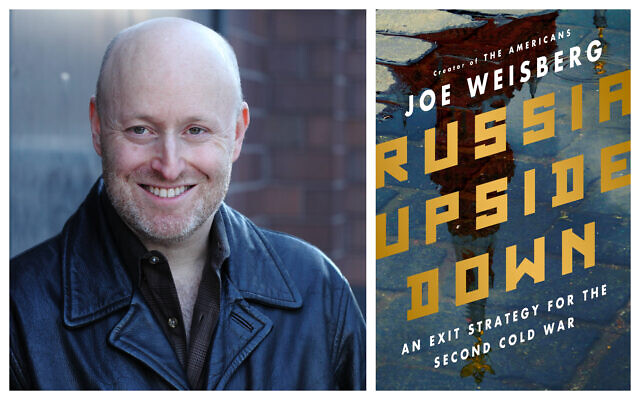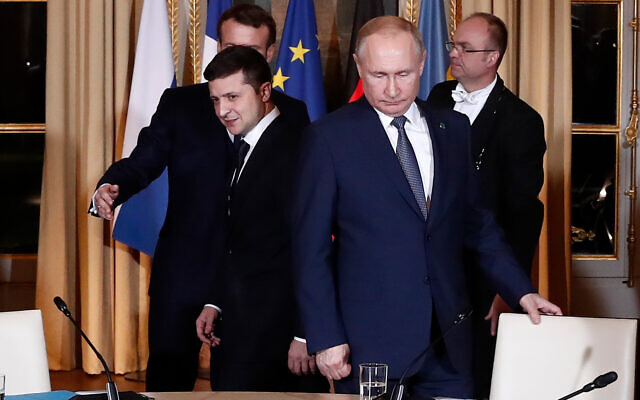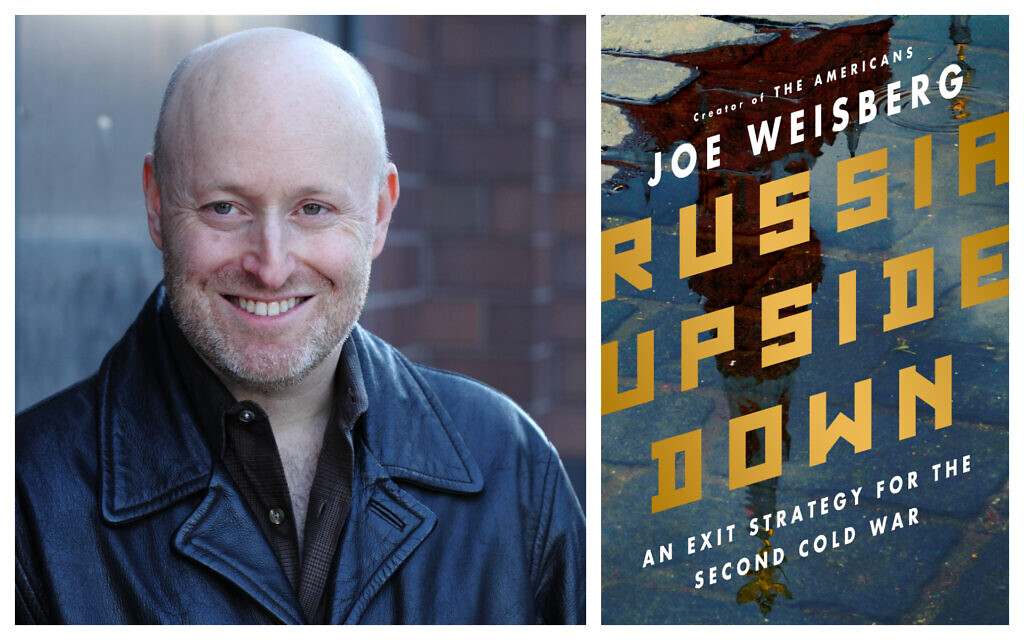With tens of thousands of Russian troops amassed along the Ukrainian border, Moscow finds itself in one of its most tense standoffs with the Wes
With tens of thousands of Russian troops amassed along the Ukrainian border, Moscow finds itself in one of its most tense standoffs with the West since the fall of the Soviet Union. The Kremlin denies plans to invade Ukraine, but the United States and its NATO allies are sending military aid to the beleaguered country and the Pentagon announced that up to 8,500 US troops have been put on high alert for a possible deployment to Eastern Europe.
What some are calling a new cold war between Russia and the United States is the focus of “Russia Upside Down,” a new book by former CIA officer-turned-writer and television producer Joseph Weisberg.
Weisberg spent three years with the CIA — a brief spell as a spy recruit that would come in handy a few years later when he drew on his experience to create award-winning spy drama “The Americans.” The show ran for six seasons between 2013 and 2018 on FX, and told the story of two KGB spies in Reagan-era America.
Weisberg says that if Russia invades Ukraine, they will be making “a terrible mistake, both strategically and morally,” but also stresses that “sending US troops to Eastern Europe and the Baltics will only increase the possibility that the [West] stumbles into a war with Russia.”
Speaking to The Times of Israel via Zoom from a hotel room in New York City, the 56-year-old Chicago-born Jewish author says that the “new cold war” isn’t actually all that new. It has its roots, he says, in Russia’s aggressive takeover of Crimea in 2014, which started a proxy war in Ukraine’s eastern Donbas region and drew tough US-imposed economic sanctions on Moscow that have significantly impacted Russia’s economy.
14,000 people have been killed in the ongoing eight-year conflict between Russian-backed separatist forces and the Ukrainian military.

A Ukrainian soldier takes his front line position in a destroyed building in the town of Avdiivka in the Donetsk region, Ukraine, November 18, 2019. (AP Photo/Vitali Komar, File)
Weisberg claims “ending economic sanctions against Moscow could be a useful step” that would help reduce rising tensions between the West and Russia.
“To deter a Russian invasion of Ukraine right now, the US ought to listen carefully to Russia’s concerns, and see how far they can go in meeting the ones that are reasonable,” he says. “I suspect this [diplomatic option] would have a greater chance of deterring a Russian invasion of Ukraine than further threats of economic sanctions.”
And, he says, it’s not as if Russian President Vladimir Putin is making much ado about nothing when it comes to the eastward expansion of NATO.
Weisberg says that at the end of the Cold War, the West tricked the Soviet Union by assuring the eighth and final leader of the Soviet Union, Mikhail Gorbachev, that if he enabled German unification, the NATO coalition would not move further east.

Joseph Weisberg, creator of ‘The Americans’ and author of ‘Russia Upside Down.’ (Courtesy/ FX)
“But very shortly after that, NATO started expanding to the east, moving militarily closer and closer to Russia, and taking in members that had formerly been part of the Warsaw Pact. So it’s pretty understandable that any large nation would feel threatened and encircled by that,” says Weisberg.
“Also, when the United States puts an anti-defense missile system right in the middle of Russia’s backyard in Eastern Europe, how is that going to look to Russia?”
Weisberg wasn’t always this even-handed. Back in 1990, his hawkish anti-communist worldview inspired him to join the CIA, where he was placed in the division that spied on the Soviet Union.
He never went on a mission and didn’t progress beyond the CIA rookie trainee program at Camp Peary in Williamsburg, Virginia — but Weisberg’s time at this training facility (known as “The Farm”) gave him a close insight into how the murky underworld of international espionage actually works.
“It became clear to me reading through various case studies at the CIA that 95 percent of them were not effective at producing useful information,” Weisberg says. “So I really began to question the value of espionage in general.”

Illustrative: Russian President Vladimir Putin, right, and Ukrainian President Volodymyr Zelensky arrive for a working session at the Elysee Palace, December 9, 2019 in Paris. (Ian Langsdon/Pool via AP)
A case in point, he says, is a recent news story attributed to the British Foreign Office that claimed Russian intelligence is in contact with Ukrainian politicians to prepare for a takeover of Kyiv. Weisberg claims while the story “is certainly plausible, it could also just be something that some source made up.”
“From the outside, it is close to impossible to judge the reliability of this kind of intelligence report,” he says.
Weisberg has some advice for the Biden administration if it wants to improve relations with Moscow. For one thing, he says, a little self-awareness would go a long way. Weisberg notes, for instance, how Russia’s political and military interests in Ukraine are not that different from the US’s own in Latin America, which have caused enormous suffering over the last few decades.
He also says the US should “make a conscious decision to stop fighting Russia,” and recuse itself from the conflict with Ukraine. It’s a fairly radical view. The US, after all, has military commitments to its NATO allies and partners across Europe that it can’t just ignore.
But Weisberg insists that Washington needs to take a less aggressive approach if it wants the ongoing tensions between the West and Russia to simmer down in the near to medium future.
“Russia seems to be concerned about US involvement in Ukraine, and about aggression towards Russia more broadly,” he says. “While the US seems to be concerned about Russian aggression around the world, and more specifically in Ukraine, and neither side seems to be able to step back from the brink.”
“There is an assumption that if you don’t act aggressively, then you will be seen as weak and taken advantage of,” says Weisberg. “But I don’t see much evidence for that.”
www.timesofisrael.com
